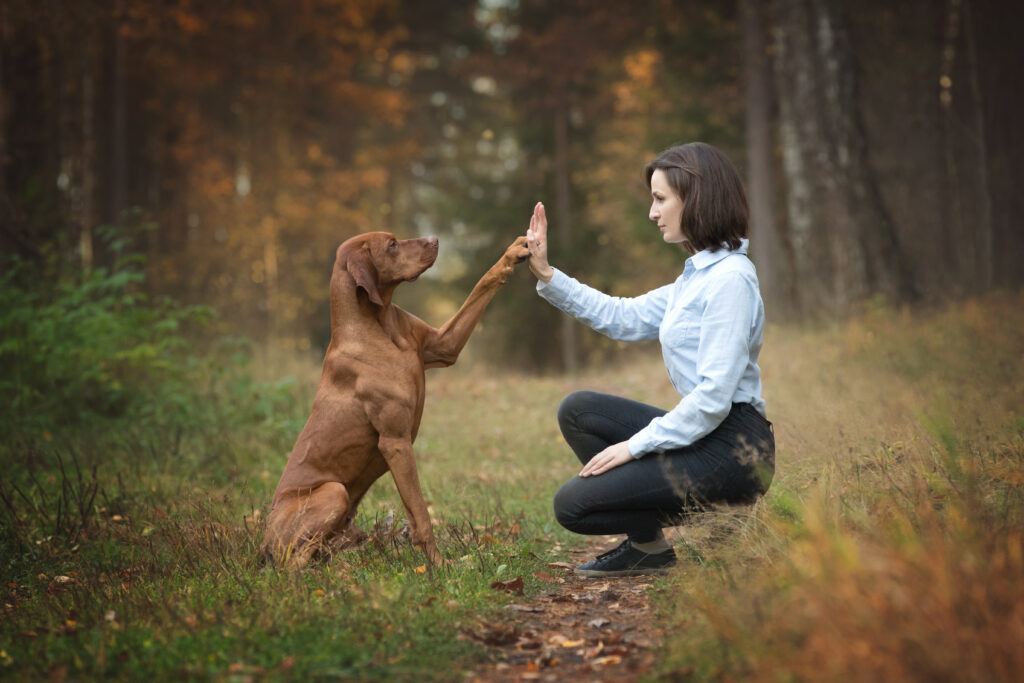Anxiety in dogs is a prevalent issue that many pet owners encounter but often struggle to manage effectively. From persistent barking and whining to destructive behavior and even aggression, the outward manifestations of anxiety can be distressing for the owner and dog alike.
Recognizing the signs and understanding the underlying causes of your dog’s anxiety is the first step toward providing them with the comfort and support they need. Continue reading to learn about some expert tips to help soothe your dog’s anxiety.
Why Do Dogs Experience Anxiety?
Anxiety in dogs, much like in humans, stems from fear of the unknown, past traumas, separation issues, specific phobias, and genetic predisposition. Certain breeds show a greater propensity towards anxious behaviors, underscoring the mix of environmental and genetic factors at play.
For instance, working breeds may display separation anxiety due to their high energy levels and strong bonds with owners. Meanwhile, smaller breeds may be more prone to anxiety when around other dogs and people. Understanding your dog’s breed-specific needs and predispositions can be a key factor in anticipating and mitigating their anxieties.
Biological Impact of Anxiety
Research into canine anxiety shows that the behavioral problem can have a profound biological impact on a dog’s health. Anxiety triggers a flood of stress hormones that affect a dog’s physical well-being alongside their mental health. Recognizing this is the first step in understanding the seriousness of addressing canine anxiety with empathy and urgency.
The science behind dog anxiety involves a complex interplay of neurotransmitters, learned behaviors, and hormonal responses. While it’s difficult to pinpoint a single cause, it’s evident that both nature and nurture play significant roles.
Identifying Anxiety in Your Dog
Signs of anxiety in dogs can be subtle or overt, ranging from excessive barking and panting to more destructive behaviors like chewing furniture or urinating indoors. Some dogs may also exhibit physical symptoms such as shaking, drooling, and a tense posture. Recognizing these signs early is essential for addressing anxiety effectively.

Expert Tips for Managing Dog Anxiety
Creating a Safe Space
One of the most effective strategies for alleviating anxiety in dogs involves creating a dedicated safe space where your dog can feel secure and relaxed. This area can be as simple as a quiet corner of your home with their favorite bed and toys, designed to provide a sanctuary from whatever may be causing them distress.
Regular Exercise
Physical activity plays a pivotal role in reducing anxiety in dogs. Just like people, when dogs exercise, their bodies release endorphins, which have natural calming effects. Consistent daily workouts not only help in expending pent-up energy but also promote overall well-being and balance.
Calming Products and Techniques
Many dog owners have found success in reducing their pet’s anxiety through the use of calming products. Some popular options include weighted blankets, anxiety vests, or calming treats infused with ingredients like chamomile and L-theanine. Calming techniques, such as a gentle massage, can also offer dogs a great deal of relief from stress.
Gradual Desensitization
Gradual desensitization can be incredibly effective for dogs who react anxiously to specific triggers, such as thunderstorms or being alone. This process involves exposing your dog to the source of their anxiety in a controlled, minimal manner, and gradually increasing the exposure as they become more accustomed to it.
Balanced Diet
Nutrition plays a crucial role in managing anxiety. A balanced diet rich in omega-3 fatty acids, for example, can support brain health and reduce inflammation, contributing to a calmer demeanor. Consulting with a veterinarian can provide guidance on the best dietary choices for your anxious dog.
Music and Aromatherapy
Soft music, particularly classical melodies, can have a soothing effect on some dogs. Similarly, specific scents, such as lavender and chamomile, can help to calm a stressed pet. However, it’s essential to ensure that any aromatherapy oils used are safe for dogs.
Professional Help
While many strategies can be effective in managing anxiety, it’s sometimes necessary to seek professional help. A veterinarian may recommend medication for severe cases, and a certified dog trainer or animal behaviorist can offer invaluable advice on managing anxiety through behavioral modification techniques.
Interacting With Other Dogs
When other dogs are present, managing an anxious dog can be challenging. It’s crucial to understand both your dog’s limits and the dynamics of dog-to-dog interactions. In the beginning, it’s best to expose your dog to calm, friendly companions to help your canine build their social trust. Slow, controlled exposures to other dogs in a neutral environment, under the guidance of a professional, can also help build confidence and social skills.
Real-Life Success Stories
Many dog owners have walked this path before and found ways to significantly improve their pet’s quality of life. Stories abound of dogs who have transitioned from being perpetually anxious to more relaxed and happy pets, thanks to the determined efforts of their caring owners. Whether it was through a combination of rigorous exercise, the introduction of a calming diet, or consistent desensitization practices, these success stories serve as a beacon of hope. For those still searching for solutions, it’s comforting to know there’s light at the end of the tunnel.

Managing Anxiety Levels
Managing your dog’s anxiety requires patience, consistency, and a deep understanding of their needs and behaviors. Each dog is unique, and what works for one may not work for another. However, by employing these expert tips to help soothe your dog’s anxiety and remaining committed to your dog’s emotional well-being, you can help them lead a more peaceful and content life. The goal isn’t just to manage anxiety but to build a deeper, more trusting bond with your beloved pet.
Overcoming anxiety is just one of the many journeys you will likely undertake with your furry friend. With the right tools and a compassionate heart, you can make a profound difference in your dog’s life, transforming their world from one of fear to one filled with happiness and peace.
Behavior Modification Training
If you’re struggling with an anxiety-ridden dog, you’re not alone. There are resources available to help you and your dog live a fruitful, peaceful life together. At Balanced K9 Academy, we specialize in dog behavior training to ensure your canine companion is a well-adjusted part of your pack. Our behavioral modification protocols are a proven way to curb fear and aggression stemming from anxiety or other issues.
It’s essential to consider the entire relationship between your dog and its environment to understand the root of the problem habits. We take the time to work with you and your dog to tailor an individualized training plan based on your specific needs. Plus, we provide you with the necessary tools to identify and alleviate anxiety-inducing behaviors at home. With our customizable training routine, you can help your dog live a healthier, happier life. Contact us today to book an appointment and learn how we can help.


